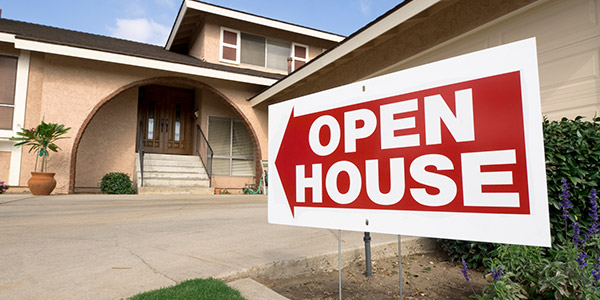Homebuyers
Hoping to Buy a More Expensive Home? Lower Mortgage Rates are Here to Help
September 24, 2024
As mortgage rates dip, homebuyers who were previously priced out of the housing may be considering wading back in. That’s because as rates drop, it becomes more affordable to buy a home because of the lower amount of interest paid as part of the loan.
For many, this increase in their purchasing power could be their long-awaited chance to afford a more expensive home they thought was out of reach or to upgrade from a smaller, less ideal place.
This rate drop is also helping current homeowners refinance into mortgages that may offer lower monthly payments. About 51.2% of all mortgage applications were for refinances in the week ending Sept. 13, according to the Mortgage Bankers Association. That was up 127% from the same week last year.
The lower rates are also helping homebuyers lock in lower monthly mortgage payments. And they're coming at a time when more homes are for sale for buyers to choose from. Nationally, there were 35.8% more homes on the market in August compared to the same month a year earlier, according to Realtor.com.
"While more [housing] inventory has been entering the market, homebuyers seem ready to pounce as they are locking in lower mortgage interest rates," said Jessica Lautz, deputy chief economist for the National Association of Realtors (NAR).
In October 2023, mortgage rates peaked at nearly 8%, the highest in decades for 30-year, fixed-rate loans, according to Freddie Mac. However, rates recently dropped to their lowest level in more than year, averaging 6.09% for 30-year, fixed-rate loans in the week ending Sept. 19, according to Freddie Mac.
That means those pricier homes are now more within reach. But buyers beware—they can also make the housing market even more competitive.
The impact of lower mortgage rates on buying power

Even a slight reduction in mortgage rates can translate to significant savings over the life of a loan.
For example, someone who purchases a $360,000 home with a 20% down payment and a 7% annual percentage rate (APR) would have a roughly $2,000 monthly mortgage payment, according to Rick Sharga, the founder of CJ Patrick Company. The firm advises companies in real estate, finance, and technology.
(The APR is the total annual cost of your loan, including interest and fees.)
If rates go down and someone can secure a 6.5% APR, they could save about $100 a month, said Sharga. With a 6% APR, monthly payments fall by nearly $200 a month.
Those small reductions in mortgage rates can offer first-time buyers a bit more flexibility. This can open the door to homes that were previously unaffordable or provide crucial wiggle room in a competitive bidding situation.
That may be key for these buyers who do not have the housing equity from the sale of a previous home to put toward their new purchases.
"First-time buyers are historically the most rate-sensitive as a change in mortgage interest rates does impact their buying power," said Lautz.
Lower mortgage rates lead to more homes for sale, higher prices

Lower rates may also bring more sellers into the housing market. Many homeowners have been reluctant to list their properties and give up the low rates they secured just a few years ago. As rates fall, they may be more willing to trade up or down into new homes.
"Buyers will have more options to choose from, with [housing] inventory increasing,” said Lisa Sturtevant, chief economist of Bright MLS in the mid-Atlantic region. “But it will still be a competitive market, particularly in high-demand areas.”
Competition strengthens as more people want to buy a home. This can lead to rising home prices, and bidding wars, especially in more popular areas with few homes for sale.
"Multiple offers and offers over list price are still common," said Sturtevant. "Prospective buyers waiting to take advantage of lower mortgage rates and more inventory this fall will still have to be prepared to act quickly when they find a home they love."
Common misconceptions about lower mortgage rates

It's easy to assume that a lower rate automatically means a better deal, but that's not always true. A buyer’s financial situation, including their credit scores and how much debt they have, is key in determining the rate they will qualify for in a loan.
"Homebuyers may think a listed rate is the same for every buyer in every financial situation," said Lautz. "However, homebuyers can influence their mortgage rate themselves by improving their credit score, working on their debt-to-income ratio, and having money in reserves."






 Smart Moves Start Here.
Smart Moves Start Here.